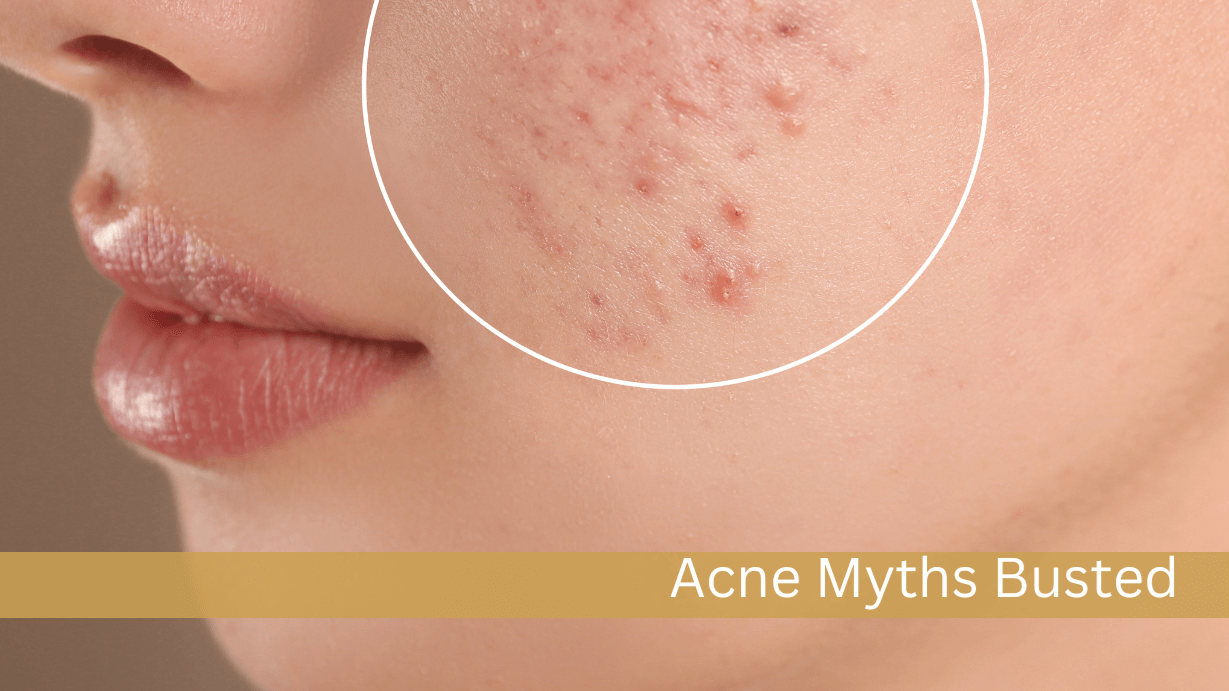Acne Myths Busted: Clearing up common misconceptions about acne.
&srotate=0)
Acne is one of the most common skin conditions, affecting millions of people worldwide. Despite its prevalence, there are numerous myths and misconceptions about acne that can lead to ineffective treatments and unnecessary frustration. In this blog post, we will debunk some of the most common acne myths and provide accurate information to help you better understand and manage this skin condition.
Myth 1: Acne Is Caused by Poor Hygiene
Fact: While good hygiene is important for overall skin health, acne is not caused by dirty skin. Acne develops when hair follicles become clogged with oil (sebum) and dead skin cells. Bacteria, particularly Propionibacterium acnes, can also contribute to inflammation and acne formation. Over-washing your face can actually irritate the skin and worsen acne. It is recommended to cleanse your face gently with a mild cleanser twice a day, followed by your skincare routine.
Myth 2: Eating Greasy Foods Causes Acne
Fact: There is no direct link between eating greasy foods and acne. However, some studies suggest that a diet high in refined sugars and dairy products can exacerbate acne in some individuals. Greasy foods like pizza or french fries might not cause acne directly, but maintaining a balanced diet with plenty of fruits, vegetables, and whole grains can help improve overall skin health.
Myth 3: Acne Only Affects Teenagers
Fact: While acne is most common during puberty due to hormonal changes, it can affect people of all ages. Many adults, particularly women, experience acne well into their 30s, 40s, and beyond. Factors such as hormonal fluctuations, stress, and certain medications can contribute to adult acne.
Myth 4: Popping Pimples Helps Them Heal Faster
Fact: Popping pimples can actually make acne worse and lead to scarring. Squeezing a pimple can push bacteria and pus deeper into the skin, causing more inflammation and potential infection. It can also damage the surrounding skin, leading to permanent scars. Instead, use topical treatments containing benzoyl peroxide or salicylic acid and consult a dermatologist for persistent acne.
Myth 5: Sun Exposure Clears Up Acne
Fact: While moderate sun exposure can dry out pimples temporarily, it is not a long-term solution for acne. Overexposure to the sun can damage the skin, leading to premature aging and an increased risk of skin cancer. Additionally, some acne medications can make your skin more sensitive to the sun, increasing the risk of sunburn. It is important to use a non-comedogenic sunscreen to protect your skin while treating acne.
Myth 6: Only Topical Treatments Work for Acne
Fact: Topical treatments are often effective for mild to moderate acne, but more severe cases may require oral medications. Oral antibiotics, hormonal treatments (such as birth control pills or anti-androgens), and isotretinoin (Accutane) are options for treating stubborn or severe acne. A dermatologist can help determine the best treatment plan based on the severity and type of acne.
Myth 7: Makeup Worsens Acne
Fact: Not all makeup causes acne. Non-comedogenic and oil-free makeup products are designed not to clog pores and can be used by individuals with acne-prone skin. However, it is important to remove makeup thoroughly before bed to prevent pore blockage. Additionally, clean makeup brushes and applicators regularly to avoid bacterial buildup.
Myth 8: Acne Is Just a Cosmetic Problem
Fact: Acne can have significant psychological and emotional effects, leading to low self-esteem, anxiety, and depression. It is important to recognize the impact acne can have on mental health and seek support if needed. Dermatologists can provide effective treatment options to improve skin health and alleviate emotional distress.
Conclusion
Understanding the facts about acne is crucial for effective treatment and management. By debunking these common myths, we hope to provide you with accurate information that empowers you to make informed decisions about your skincare routine. If you are struggling with acne, consulting a dermatologist can help you develop a personalized treatment plan that addresses your specific needs. Remember, clear skin is achievable with the right approach and patience.